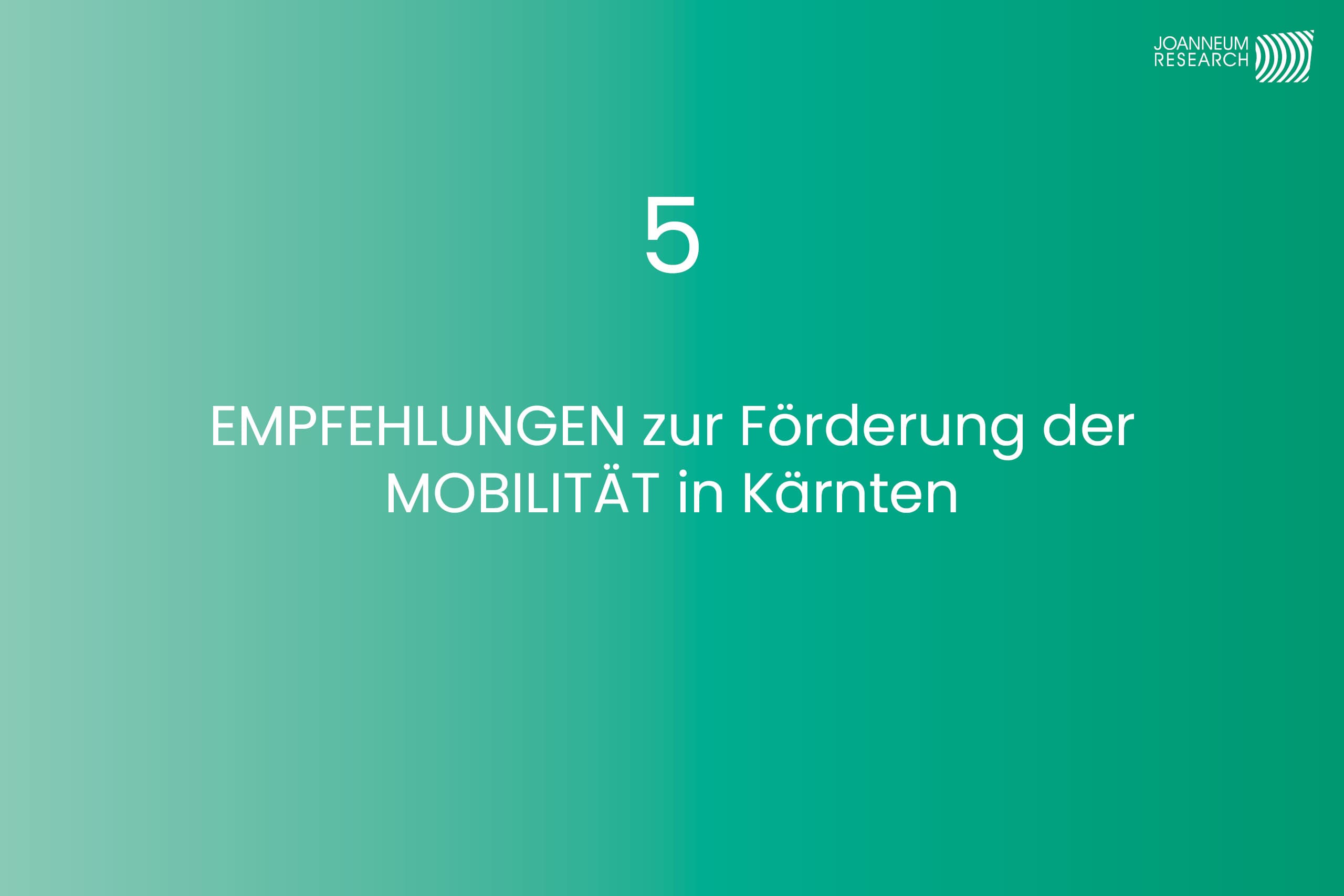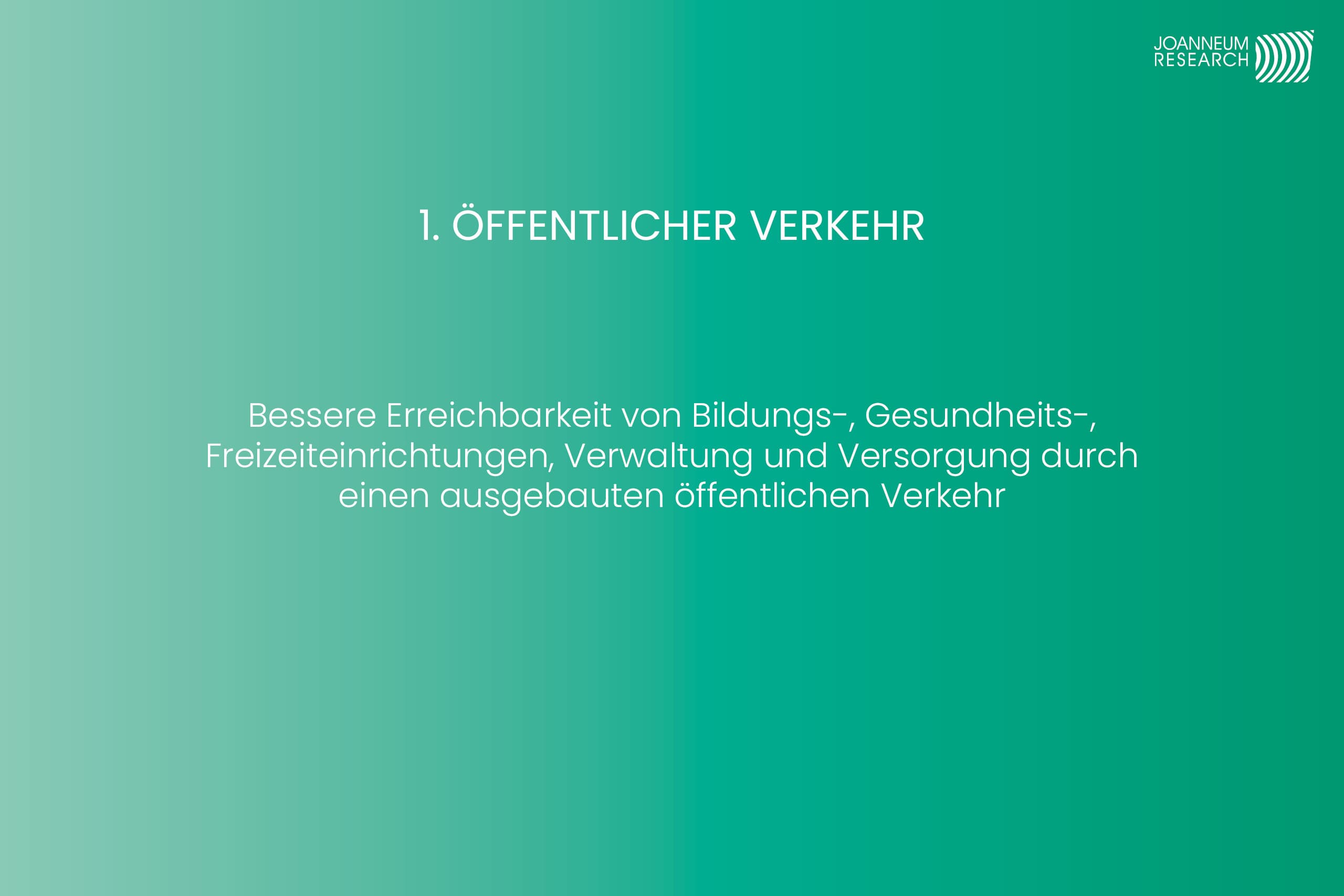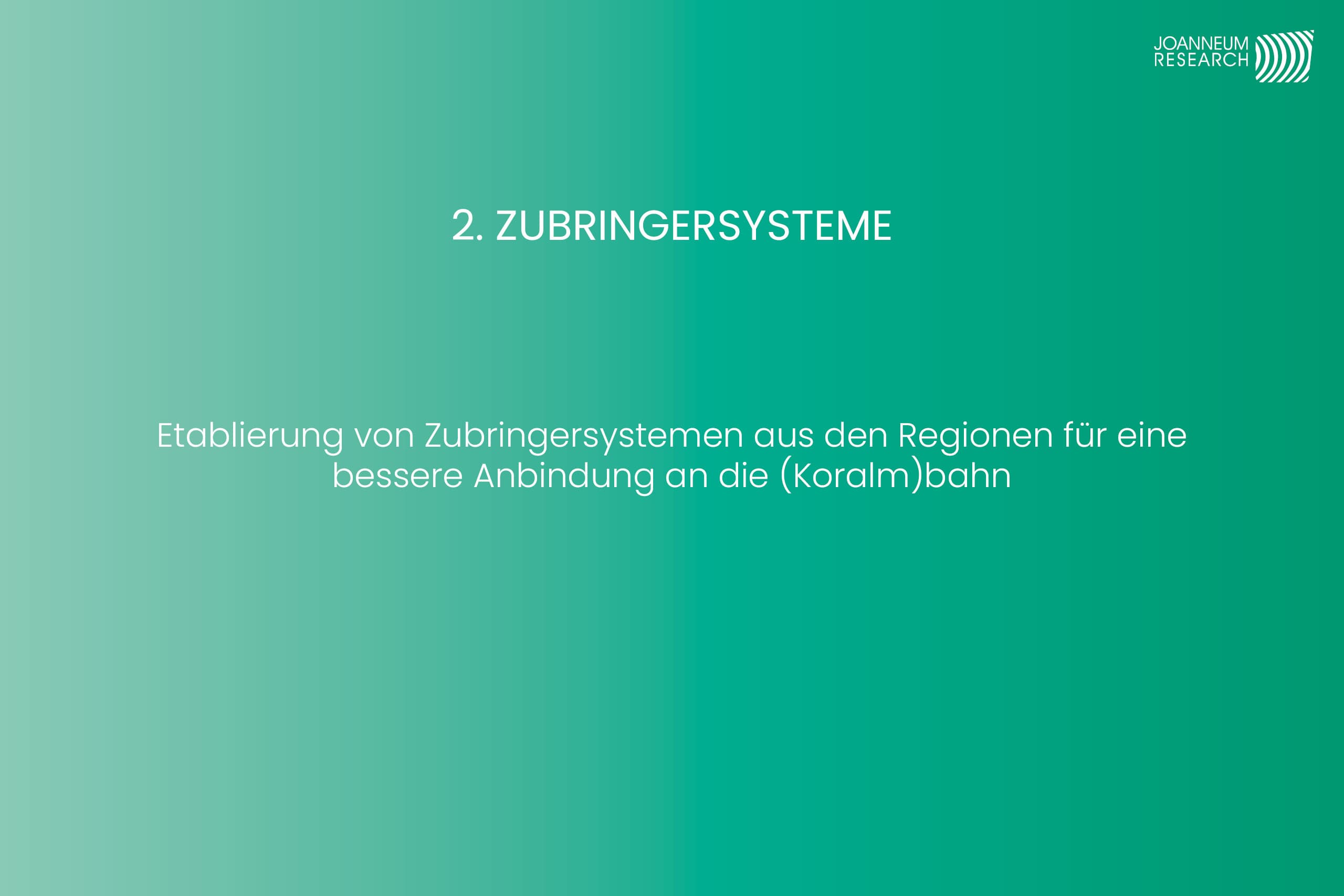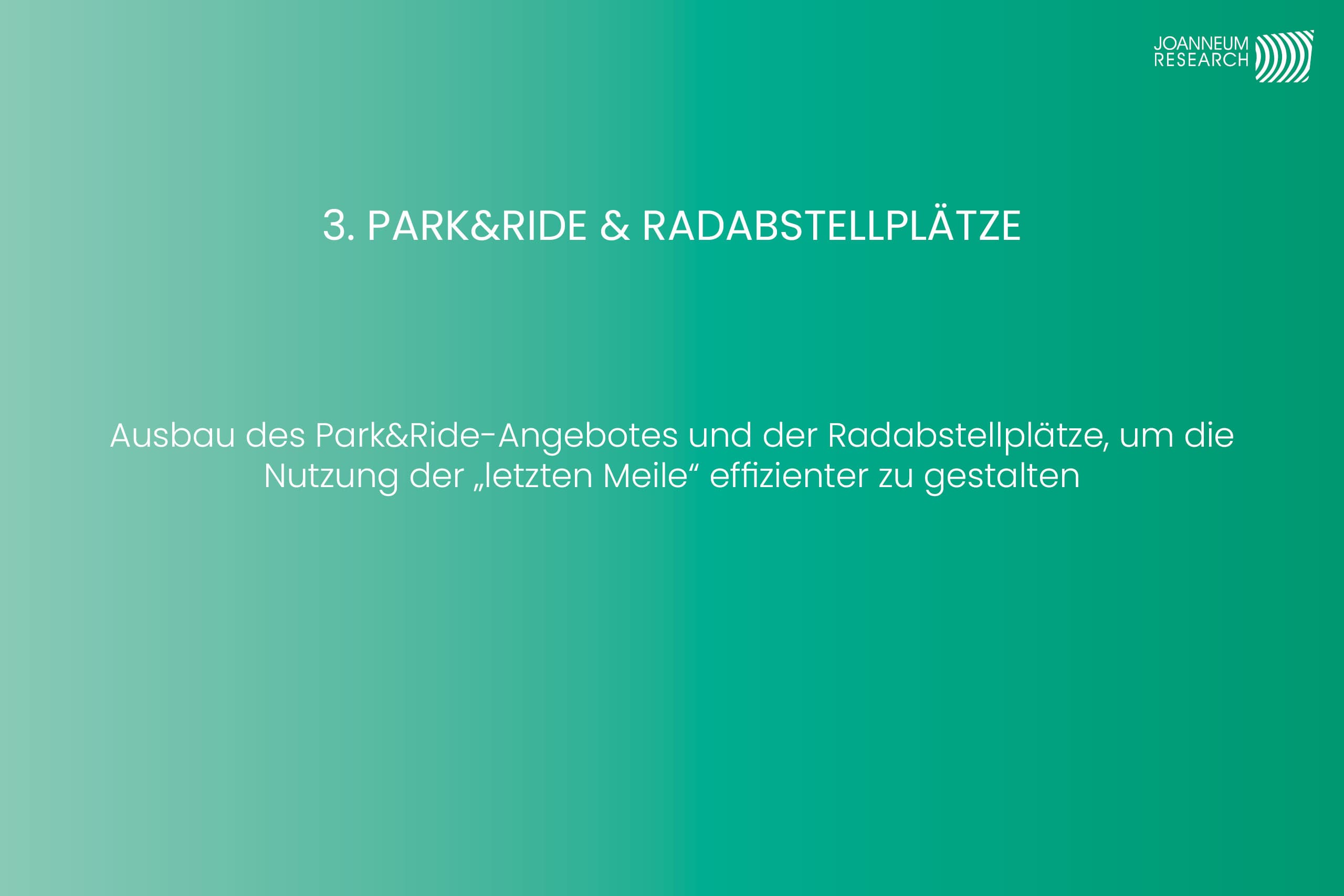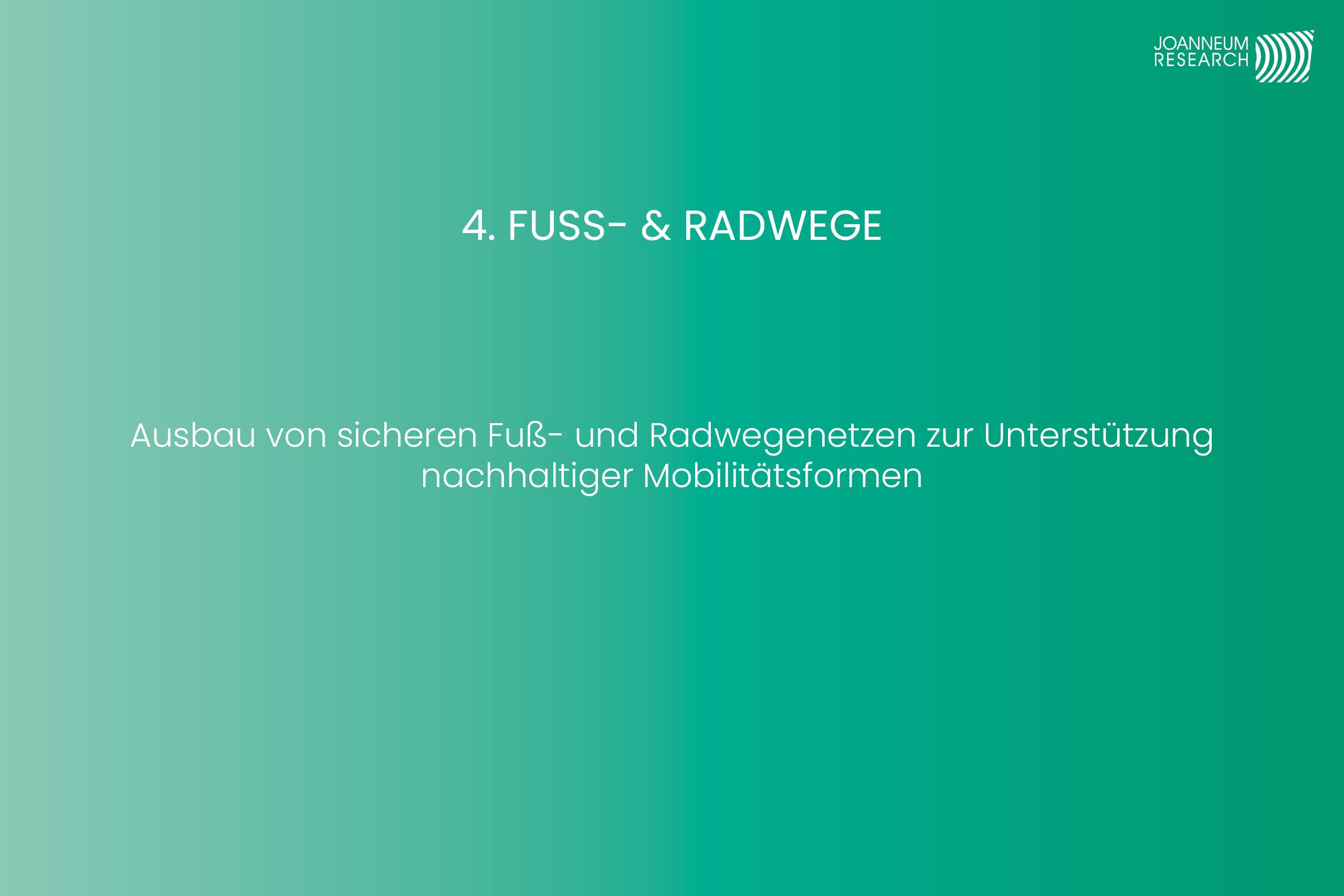With the Koralm Railway tunnel at its heart, the Koralmbahn railway project is nearing completion – and promises to change Austria's mobility landscape forever. Scheduled to become fully operational by the end of 2025, this groundbreaking development will bring the federal states of Carinthia and Styria even closer together by linking the cities of Klagenfurt, Villach and Graz to each other via a direct rail service. In addition to significantly improving accessibility between these urban centres, the connection will be create a “new” urban agglomeration in the south of Austria by bringing the cities within daily commuting distance of one another. However, there is still room for improvement when it comes to connecting outlying regions.
Mobility & social participation
Mobility represents a decisive factor for social inclusion as it provides a link between living, working and leisure spaces. It is a key element in the provision of essential services, which do so much to shape quality of life and personal fulfilment, as well as influencing the inherent quality of a location and future opportunities of a region. POLICIES – the Institute for Economic, Social and Innovation Research – was commissioned to explore the mobility habits of the population of Carinthia: a comprehensive survey of more than 2,300 people living in the province revealed the need for a broad portfolio of measures if it is to meet the mobility needs of the local population. The study demonstrated that while car ownership was a necessity for many, there is still a strong underlying willingness to switch to public transport – provided that it represents a viable alternative.
Voraussetzungen für Mobilitätswende
The study underlined the importance of an effective mobility transition that takes into account both the need to provide basic services as well as the population’s day-to-day realities, including practicality and safety aspects. For transport planning purposes, a proposal was made to divide Carinthia into functional areas that extend beyond established municipal and district boundaries with a view to creating better infrastructure and increasing people’s willingness to use public transport. Open communication and taking rural areas into account are key factors.
Individual mobility, and mobility for women in particular, form the focus, given that the study confirmed the potential of improved infrastructure to enhance participation for women – who often have a greater burden in terms of everyday errands and provision of childcare. Using public transport can be made more attractive through various measures such as expanding services, providing safe cycle paths and pedestrians routes, as well as park-and-ride facilities.
Conclusions: The Koralm Railway development marks a decisive step towards promoting individual mobility and equal opportunities in Austria. Creation of practicable public transport alternatives and initiating needs-orientated transport planning can help to improve quality of life while promoting social participation for all population groups.
More


